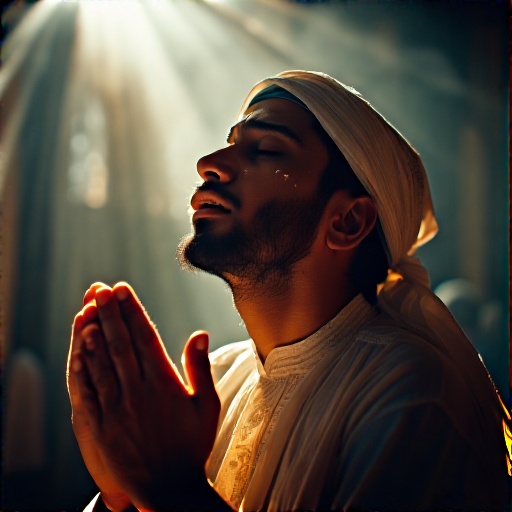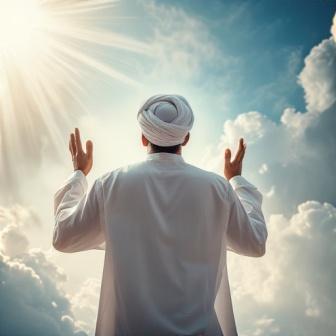Islam is one of the world’s fastest-growing and most widely practiced religions, with over 1.9 billion followers. Yet, many people still have misconceptions or incomplete knowledge about what Islam truly stands for. Some view it only as a set of rituals, while others mistake it as a cultural or ethnic identity. However, Islam is far deeper—it is a complete way of life that guides not only spiritual, but also moral, social, and individual aspects of a believer’s existence.
Islam, which comes from the Arabic word “silm” (peace) and “aslama” (submission), means peace through submission to Allah (God).
The Core Belief of Islam: Oneness of Allah (Tawheed)
The foundation of Islam is the belief in one God — Allah.
Allah introduces Himself in the Qur’an as:
“Say, He is Allah, One. Allah, the Eternal Refuge. He neither begets nor is born, nor is there to Him any equivalent.” (“Surah Al-Ikhlas, Ayahs 1-4”)
This chapter describes Allah as unique, eternal, self-sufficient, and unlike any of His creation.
Prophet Muhammad (PBUH) reinforced this, saying:
“The most excellent remembrance is: There is none worthy of worship except Allah.” (Sunan Ibn Majah, Hadith 3800)
Islam rejects all forms of idolatry, polytheism, and associating partners with Allah. This central faith is the anchor of everything a Muslim does.
Prophet Muhammad (PBUH) – The Last Messenger
The Role of Prophets
Muslims believe that Allah sent prophets to every nation to guide them, from Adam (AS) to Noah (AS), Abraham (AS), Moses (AS), Jesus (AS), and finally, Muhammad (PBUH). The Qur’an says:
“We sent to every nation a messenger, [saying]: Worship Allah and avoid false gods.” (“Surah An-Nahl, Ayah 36”)
Prophet Muhammad (PBUH)
Born in Makkah in 570 CE, Prophet Muhammad (PBUH) was chosen as the final messenger. He did not bring a new religion but confirmed the original message of all prophets — worship Allah alone.
Allah says:
“Muhammad is not the father of any of your men, but he is the Messenger of Allah and the Seal of the Prophets.” (“Surah Al-Ahzab, Ayah 40”)
His sayings and actions, preserved in authentic Hadith, serve as the second source of guidance for Muslims after the Qur’an.
The Qur’an – The Word of Allah
Muslims believe the Qur’an is the literal word of Allah, revealed to Prophet Muhammad (PBUH) over 23 years through Angel Jibreel (Gabriel AS).
Allah says:
“Indeed, it is We who sent down the Qur’an, and indeed, We will be its guardian.” (“Surah Al-Hijr, Ayah 9”)
This promise of preservation has made the Qur’an unique—unaltered for more than 1400 years.
The Qur’an provides guidance in every matter of life: theology, morals, justice, family, trade, spirituality, and law.
Prophet Muhammad (PBUH) said:
“The best among you are those who learn the Qur’an and teach it.” (Sahih al-Bukhari, Hadith 5027)
The Five Pillars of Islam
Islam’s framework of practice is built upon five key pillars:
1. Shahadah (Declaration of Faith)
To testify: “There is no god but Allah, and Muhammad is His Messenger.” This is the entry point to Islam.
2. Salah (Prayer)
Muslims perform five daily prayers. Allah says:
“Indeed, prayer prevents immorality and wrongdoing.” (“Surah Al-Ankabut, Ayah 45”)
Prophet Muhammad (PBUH) said:
“The difference between us and them (disbelievers) is prayer. Whoever neglects it has disbelieved.” (Sunan al-Tirmidhi, Hadith 2621)
3. Zakat (Charity)
Muslims give 2.5% of their savings yearly to help the poor, purifying wealth and supporting society.
Allah says:
“And establish prayer and give zakat, and whatever good you put forward for yourselves – you will find it with Allah.” (“Surah Al-Baqarah, Ayah 110”)
4. Sawm (Fasting in Ramadan)
Every year, Muslims fast for a month, abstaining from food, drink, and desires from dawn to sunset.
Allah says:
“O you who believe, fasting is prescribed for you as it was prescribed for those before you, that you may attain taqwa (God-consciousness).” (“Surah Al-Baqarah, Ayah 183”)
5. Hajj (Pilgrimage to Makkah)
A once-in-a-lifetime obligation for those who are able.
Prophet Muhammad (PBUH) said:
“Whoever performs Hajj for Allah’s sake and does not have sexual relations nor commit evil, then he will return free from sins as the day his mother bore him.” (Sahih al-Bukhari, Hadith 1521; Sahih Muslim, Hadith 1350)
Islam’s Ethical and Social Teachings
Islam is not limited to rituals; it provides a comprehensive moral system.
Honesty and Trustworthiness
The Qur’an says:
“Indeed, Allah commands you to render trusts to whom they are due and to judge with justice.” (“Surah An-Nisa, Ayah 58”)
Prophet Muhammad (PBUH) was known as “Al-Amin” (The Trustworthy) for his honesty.
Justice
“O you who believe! Stand out firmly for justice, as witnesses to Allah, even if against yourselves, parents, or relatives.” (“Surah An-Nisa, Ayah 135”)
Compassion and Mercy
Prophet Muhammad (PBUH) said:
“The merciful will be shown mercy by the Most Merciful. Be merciful to those on the earth, and the One above the heavens will be merciful to you.” (Jami’ al-Tirmidhi, Hadith 1924)
Islam emphasizes kindness to neighbors, parents, orphans, the poor, and even animals.
Islam and the Hereafter
A key part of Islamic belief is that life does not end in this world. After death, every soul will be resurrected and judged.
Allah says:
“Every soul shall taste death, and you will only be given your [full] compensation on the Day of Resurrection.” (“Surah Aal-e-Imran, Ayah 185”)
Paradise (Jannah) is the reward for those who believe and do righteous deeds, while Hellfire (Jahannam) awaits those who reject Allah and persist in sin.
Prophet Muhammad (PBUH) explained:
“The worldly life is a prison for the believer, and a paradise for the disbeliever.” (Sahih Muslim, Hadith 2956)
This belief reinforces accountability, purpose, and discipline in daily life.
Misconceptions About Islam
- Islam promotes violence: In reality, the Qur’an teaches peace:
“Whoever kills one person—it is as if he killed all mankind. And whoever saves one person—it is as if he saved all mankind.” (“Surah Al-Ma’idah, Ayah 32”) - Women are oppressed in Islam: Islam gave women rights to inheritance, education, and dignity long before other civilizations.
Prophet Muhammad (PBUH) said:
“The best of you are those who are best to their wives.” (Sunan Ibn Majah, Hadith 1978) - Islam is only for Arabs: The Qur’an states clearly:
“We have sent you, [O Muhammad], to mankind as a messenger, and sufficient is Allah as Witness.” (“Surah An-Nisa, Ayah 79”)
Islam is universal, for all humanity regardless of race or ethnicity.
Islam is not just a religion of rituals but a complete way of life. It teaches belief in one God, following the guidance of the Qur’an and Sunnah, practicing worship through the Five Pillars, and living with justice, mercy, and compassion.
For Muslims, Islam is the path to peace in this life and eternal success in the Hereafter. For non-Muslims seeking truth, it offers clear guidance and answers to life’s deepest questions.
To know Islam is to know peace, accountability, and purpose.







